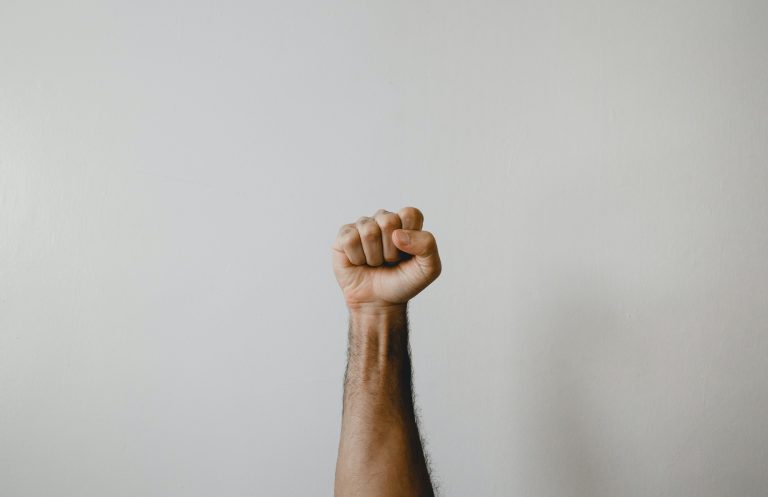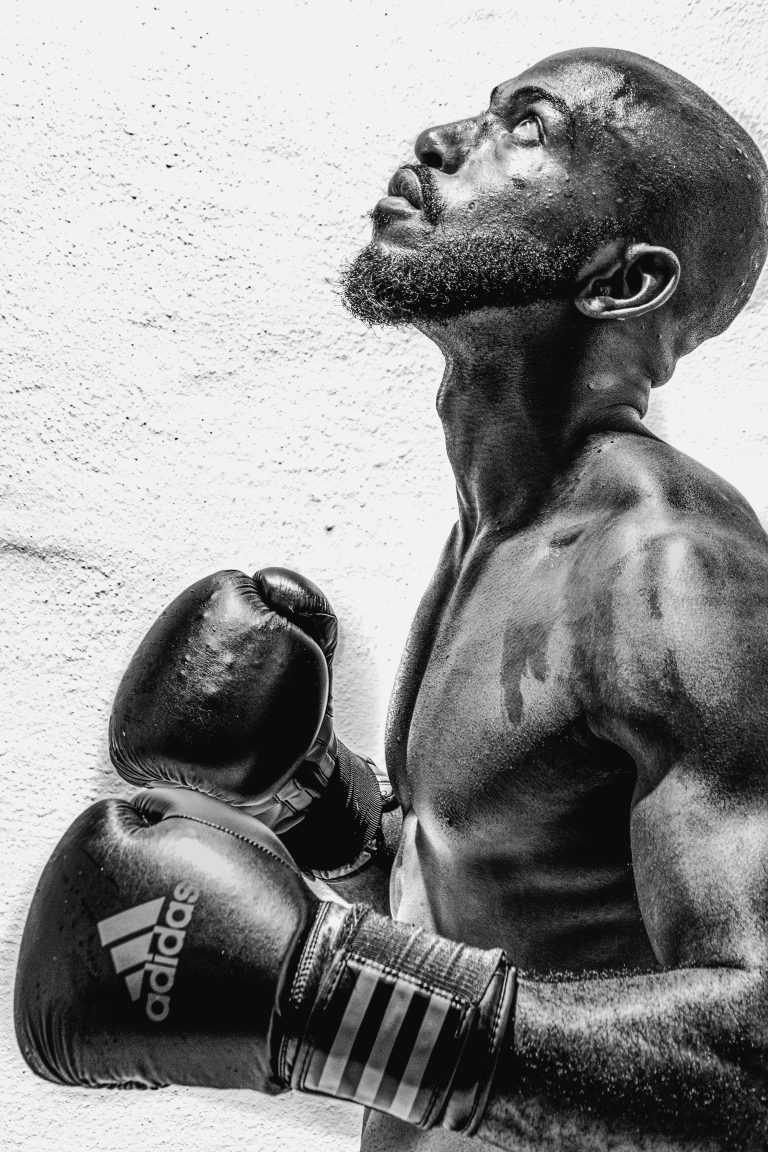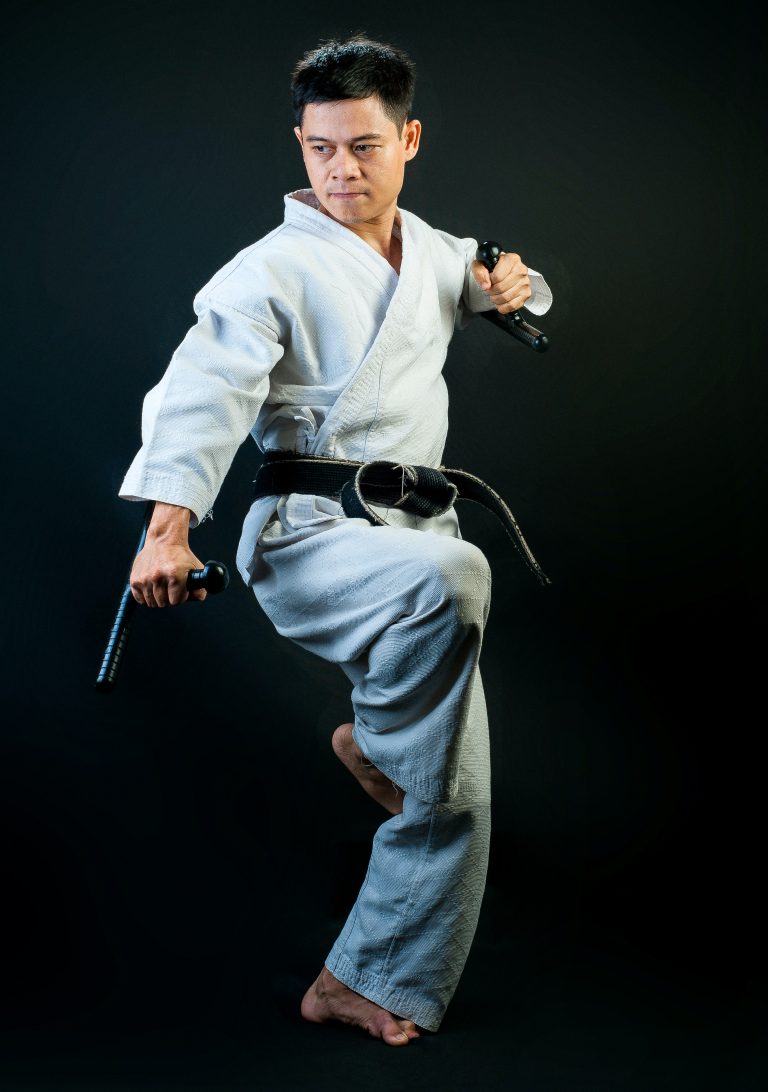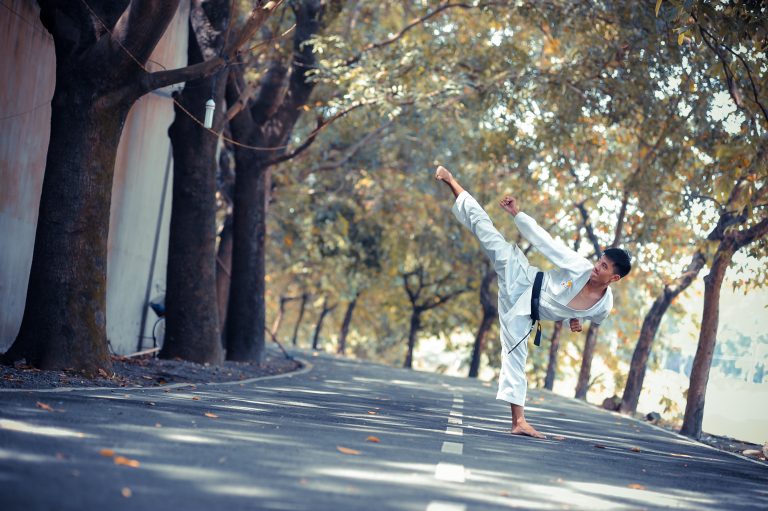What is the Traditional Philosophy Behind Karate?
Karate is an ancient martial art that originated in the Ryukyu Kingdom in Okinawa, Japan. The primary components of karate are kihon (basics), kata (forms), and Kumite (sparring). It has since spread to countries around the globe and is practiced by millions of people of all ages and abilities. While its primary purpose is self-defense, karate also promotes physical fitness, mental discipline, and spiritual growth.
But just as important as the physical aspects of karate are the traditional philosophies that underpin it. These philosophies help explain why karate is so much more than just a system of self-defense. So what is the traditional philosophy behind karate, and how does it shape the art?
1. Respect
Respect is one of the foundational principles of traditional karate. It is important to show respect to one’s training partners, opponents, teachers, and oneself. This kind of respect helps create a safe, cooperative atmosphere in which all martial artists can practice and learn.
In Japan, respect for others (known as “Rei”) is considered to be an essential virtue. Karateka (karate practitioners) must demonstrate this respect whenever possible. This includes showing respect in the dojo (training hall) and in tournaments by bowing before and after a match. It also means not using karate techniques on anyone unless absolutely necessary.
2. Character Development
Karate is about more than just physical techniques; it also requires mental discipline and character development. Karate was traditionally walked as both a physical and spiritual journey. Martial artists used their training to improve themselves in both body and mind.
This kind of development requires more than just memorizing techniques and forms; it requires a disciplined mind and an attitude of humility. Karateka must strive to make the most of their potential, while also recognizing their limitations. This helps them develop their character and improve their overall quality of life.
3. Etiquette and Courtesy
Karate begins with respect, but it also involves etiquette and courtesy. These are display behaviors that martial artists must exhibit while in the dojo, in competition, and when interacting with others outside of the martial arts.
In the dojo, karateka should maintain a level of discipline in all their activities. This includes showing proper respect for instructors and senior students and keeping their opinions about techniques to themselves. They should also wear appropriate clothing, observe all dojo regulations, and help clean up after class is over.
Outside of the dojo, karateka should also practice courtesy and etiquette when interacting with others who may not be familiar with the martial arts. This includes avoiding showing off skills or being overly aggressive, as well as maintaining a polite attitude at all times.
4. The Path of Constant Improvement
Karate is often referred to as a journey or a path, rather than a goal or a destination. Martial artists must continually work to improve themselves so that they can progress on their path.
This means developing their technique and understanding of the art beyond just learning basic forms and techniques. It requires a commitment to ongoing practice in order to gain proficiency and Continued effort is essential for martial artists to advance in their training.
It takes time to reach the higher levels of skill and understanding required for advanced kata (forms) or Kumite (fighting). But each step along the path offers new lessons, new abilities, and an ever-increasing depth of understanding of the art.
Conclusion
Karate is an ancient martial art with a deep history and traditional philosophy that shapes its practice today. The foundation of these philosophies are respect, character development, etiquette and courtesy, and a commitment to self-improvement.
These concepts are essential for those who wish to understand and practice karate at a deeper level than just physical technique. They provide a basis for physical, mental, and spiritual development while also fostering cooperation among members of the martial arts community.
By understanding and striving to embody these principles, martial artists can ensure that karate remains a vibrant and meaningful art for generations to come.
What is the Traditional Philosophy Behind Karate?
Karate is not just a martial art; it is a way of life, an integrated system of physical, mental, and spiritual training that has developed over many centuries. The traditional philosophy behind Karate is based on the principles of Zen Buddhism, and it teaches practitioners to cultivate a deep awareness of their own bodies, minds, and surroundings. In this article, we answer some of the most frequently asked questions about the traditional philosophy behind Karate.
What is Zen Buddhism?
Zen Buddhism originated in China and was later introduced to Japan in the 12th century by Eisai, a Japanese monk. It emphasizes the importance of mindfulness, deep breathing, and meditation to develop a state of calm and inner peace. Zen Buddhism also emphasizes the importance of living in the present moment, rather than dwelling on the past or worrying about the future.
How does Zen Buddhism relate to Karate?
Karate was developed in Okinawa, Japan, where it evolved from a mixture of Chinese martial arts and traditional Japanese fighting techniques. Zen Buddhism was also present in Okinawa at the time, and it strongly influenced the development of Karate. The traditional philosophy behind Karate emphasizes the importance of mindfulness, deep breathing, and meditation, which are all key components of Zen Buddhism.
What are the key principles of the traditional philosophy behind Karate?
There are several key principles of the traditional philosophy behind Karate, including:
1. Respect
Karate teaches practitioners to respect themselves, their teachers, and their fellow students. This principle is closely related to the Zen Buddhist practice of „right action,“ which emphasizes the importance of acting in a way that is ethical and non-harming.
2. Perseverance
Karate requires a great deal of hard work, dedication, and perseverance. Practitioners must be willing to push themselves to their physical and mental limits in order to achieve their goals. This principle is closely related to the Zen Buddhist concept of „suffering,“ which emphasizes the importance of enduring hardships in order to achieve enlightenment.
3. Self-discipline
Karate teaches practitioners to develop self-discipline and self-control. They must learn to regulate their emotions and stay centered, even in the midst of intense physical training or combat. This principle is closely related to the Zen Buddhist practice of „mindfulness,“ which emphasizes the importance of being aware of one’s thoughts and feelings in the present moment.
4. Humility
Karate teaches practitioners to remain humble and avoid arrogance. They must recognize that there is always more to learn, and that even the most advanced practitioners have room for improvement. This principle is closely related to the Zen Buddhist concept of „beginner’s mind,“ which emphasizes the importance of approaching every situation with an open mind and a willingness to learn.
What are the benefits of practicing Karate?
Practicing Karate can offer a wide range of physical, mental, and spiritual benefits. Some of the key benefits include:
1. Improved physical fitness
Karate involves a lot of physical activity, including cardio, strength training, and flexibility exercises. Practitioners can expect to see improvements in their overall fitness, including increased stamina, strength, and flexibility.
2. Improved mental focus
Karate requires a great deal of mental focus and concentration. Practicing Karate can help learners to sharpen their mental faculties and improve their ability to concentrate and focus.
3. Increased self-confidence
Through hard work and dedication, Karate learners can develop a strong sense of self-confidence and self-esteem. They can learn to trust in their own abilities and become more self-assured in all areas of their lives.
4. Greater self-awareness
Karate teaches learners to become more aware of their own bodies, minds, and surroundings. This heightened awareness can lead to greater self-understanding and a deeper appreciation for the world around them.
Conclusion
The traditional philosophy behind Karate is based on the principles of Zen Buddhism, and it emphasizes the importance of mindfulness, deep breathing, and meditation. Karate practitioners learn to cultivate a deep awareness of their own bodies, minds, and surroundings, and they learn to live in the present moment. Through hard work, dedication, and perseverance, Karate learners can reap a wide range of physical, mental, and spiritual benefits.
Inhaltsverzeichnis





